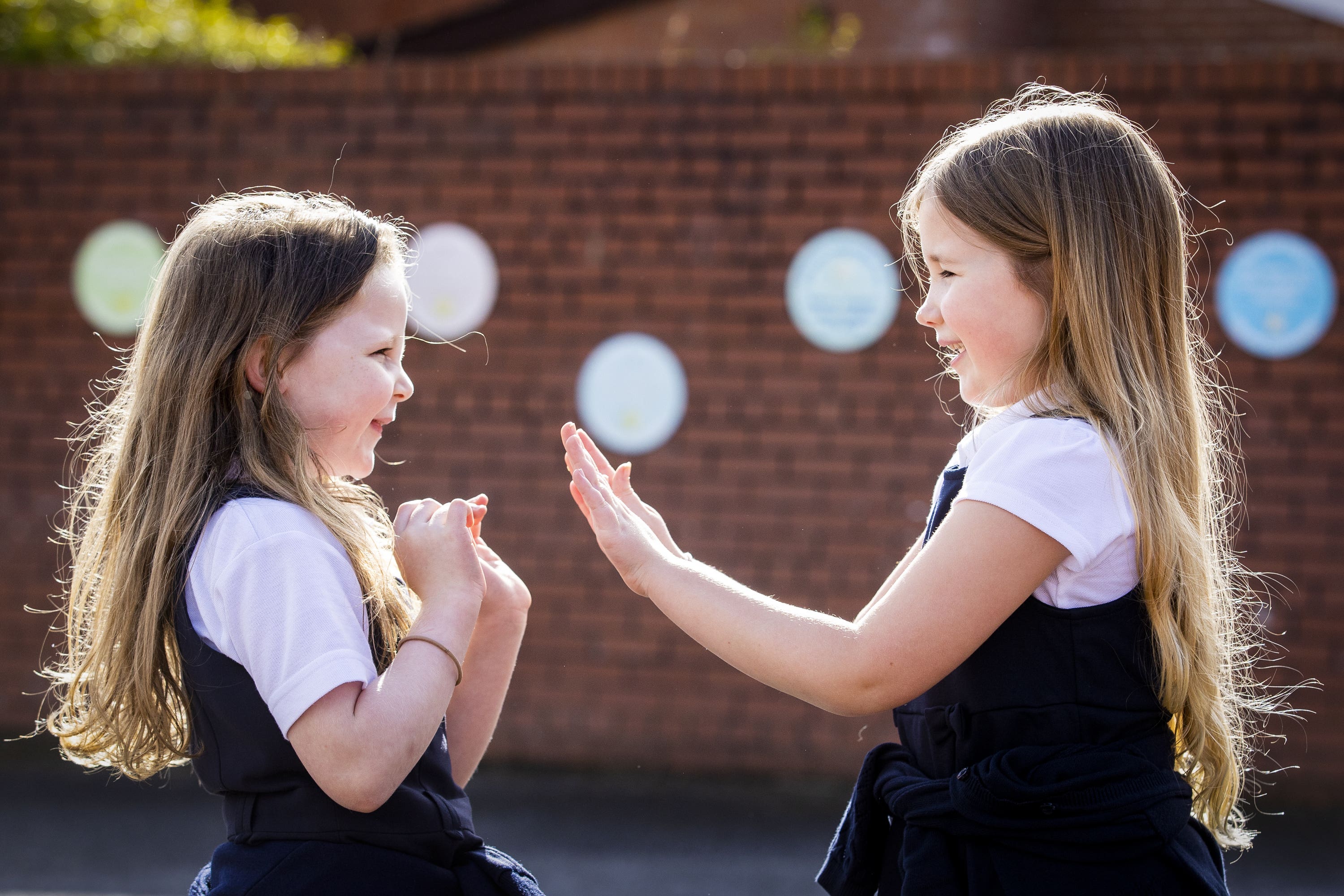Young children able to co-operate for greater good even at personal cost – study
Researchers said a lot of challenges facing society today involved choices between one’s self-interest and contributing to the common good.

Children can work together to reach a target that benefits a whole group even if it is at a personal cost to themselves, a new study has suggested.
Researchers invited groups of six to 10-year-olds to take part in a game where they were each given containers of water and could decide how much of it to offer into a common pool.
If the group contributed a certain amount of water it resulted in benefits for the whole group, but children also obtained benefits for any water they kept.
A lot of the challenges facing society today involve choices between one’s self-interest and contributing to the greater good
At the same time, the participants were either given feedback about their own outcomes in the game or about everyone’s outcomes.
The results showed the majority of groups achieved their objectives and co-operated until the last round of the game, even when children observed the outcomes of others within their groups.
Those who did see everyone’s outcomes were less likely to keep reaching the threshold as the game progressed, and differences in individual outcomes became more noticeable.
Researchers say the findings provide valuable insights into how groups of people can work together to overcome communal challenges and demonstrate the effectiveness of setting clear and unambiguous targets.
Our study shows that working towards a clear target can yield results that ultimately benefit everyone. And even children as young as six can do it
Lead author Dr Patricia Kanngiesser, from the University of Plymouth, said: “A lot of the challenges facing society today involve choices between one’s self-interest and contributing to the greater good.
“That is certainly the case if we think about things like climate action, where targets can only be achieved if people and nations work together.
“Our study shows that working towards a clear target can yield results that ultimately benefit everyone. And even children as young as six can do it.”
The study is the latest by Dr Kanngiesser, and Plymouth colleague Dr Jan Woike, to use games to study human behaviour and investigate ways of promoting co-operation.
This game focused on children at an age where they develop a sense of competition. We might have expected that to become a factor when the children realised how others in their group were behaving, but that was largely not the case
It also allowed them to explore findings from previous research, which showed that having the opportunity to compare own and others’ outcomes can lead to competition and decrease willingness to contribute to the common good.
For the purposes of this study, children had the opportunity to talk during the game and spoke, for example, about reaching the common goal.
When children had the chance to see everyone’s outcomes, they compared their own and others’ performances more frequently.
They also talked more in general and mentioned the act of giving water more, showing that children reacted to different situations in a flexible manner and increased their efforts to co-ordinate when circumstances demanded it.
(The study) demonstrates that with meaningful targets and the right feedback, we can help individuals to look beyond their own self-interest towards action that has the potential to benefit society more broadly
Dr Kanngiesser added: “This game focused on children at an age where they develop a sense of competition.
“We might have expected that to become a factor when the children realised how others in their group were behaving, but that was largely not the case.
“It demonstrates that with meaningful targets and the right feedback, we can help individuals to look beyond their own self-interest towards action that has the potential to benefit society more broadly.”
– The study, Children Sustain Co-operation In A Threshold Public-Goods Game Even When Seeing Others’ Outcomes, is published in the journal Psychological Science.
Bookmark popover
Removed from bookmarks